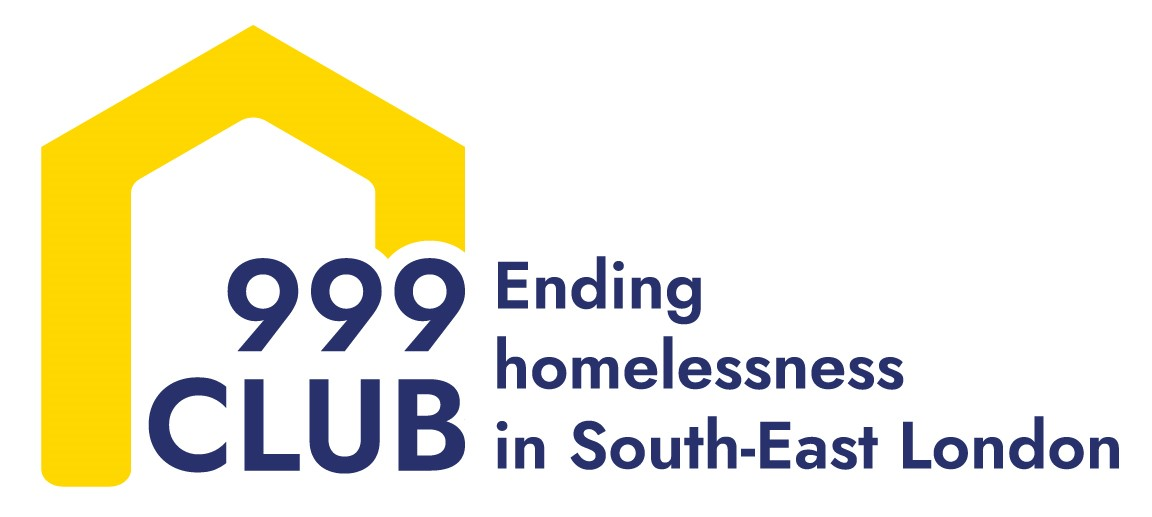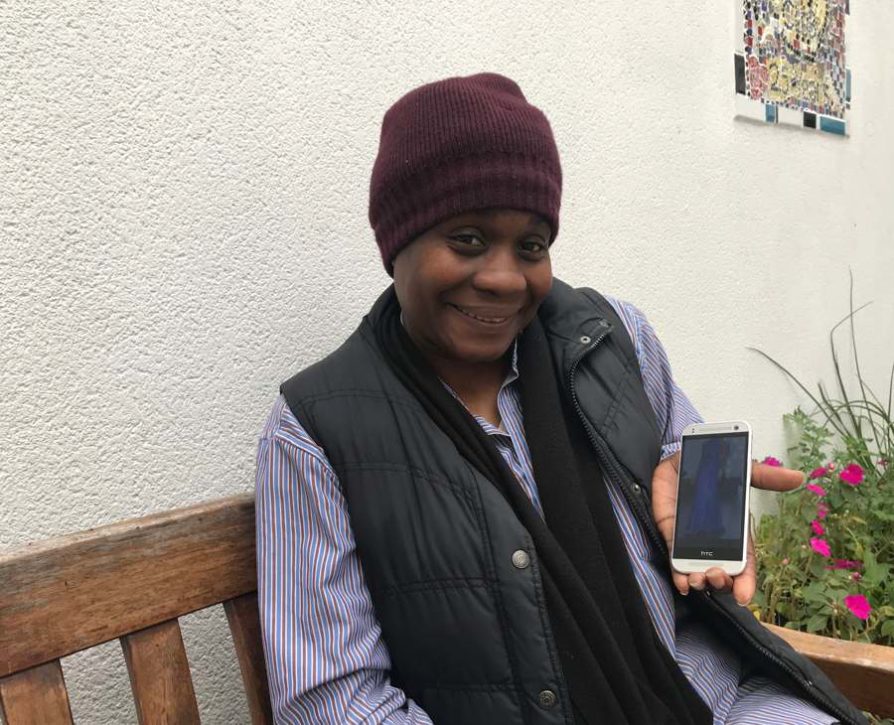World Homeless Day on Wednesday October 10 marks the start of colder, wetter weather and darker days which can be particularly difficult for rough sleepers.
In Lewisham, the number of people officially recorded as being homeless has risen by 270 percent between 2011/12[1] and 2016/17[2], although the actual number of people rough sleeping is estimated to be higher.
The 999 Club in Deptford been working for 26 years to empower homeless people to transform their lives.
Fashion designer Irene has been staying in the 999 Club’s night shelter for a month. She became homeless after her business failed and she fell behind in her rent.
She said: “There are so many homeless people out there, some of them are skilful. Every homeless person has a different situation.
“As soon as people hear you are homeless, they start to treat you a different way. They make assumptions about you. I want to say to them – don’t judge people, just talk to them.
“I have lots of messages I want to put on t-shirts to spread the word, like: ‘I am a skilled homeless person. Treat me with respect. You don’t know my ability,’ and ‘Don’t label me because I am homeless. Get to know my story.’”
Here are some ways that you can help a rough sleeper, this winter and throughout the year.
1. Take time to talk.
Many people sleeping rough say they feel alienated and depersonalized. Stopping and taking the time for a short chat can make a big difference to a person’s sense of worth.
George (name changed to protect identity) had two periods of sleeping rough around Greenwich and Deptford in early 2018.
He said: “The hardest bit about sleeping rough is people’s perceptions of you. I was on medication and if you go into a café and ask for a glass of water to take your pills, they say ‘get out, you junkie’.
“When I was on the streets, I wanted someone to talk to. Engage a homeless person in conversation. Find out who they are and what they want. It might not be obvious, for example I had stomach problems so I couldn’t accept food from people. Everyone has different things they can help with.”
2. Do what you feel most comfortable with.
Not all homeless people beg, and not everyone who begs is homeless. However, if you are asked for money, do what you feel works for you, knowing that any gift should be given without conditions.
If you would like to give something instead of money, ask the person what they most need. While donations of food can be well-intentioned, allergies and intolerances can make it difficult for some people to accept these.
3. Contact Street Link.
This service operates throughout England and Wales. Members of the public can log details of a homeless person they come across on the Street Link website and this information is sent to the local authority or outreach service to help them find the individual and connect them to support.
Details requested include the location of the rough sleeper and the time they were there as well as a description of them which would help find them. See https://www.streetlink.org.uk/
4. Spread the word about local services
If you know of homeless shelters in your neighbourhood, please pass on this information. Don’t assume the person sleeping rough already knows about them.
The 999 Club runs a night shelter and daytime drop-in centre for rough sleepers and people who are vulnerably housed in South East London. It opens through the year with capacity for 30 people each night at its shelter. Guests are given dinner and breakfast, access to a shower and clothes washing facilities as well as housing and benefits advocacy and advice, and support with job skills and training. Homeless shelters such as these do not charge clients for their use.
5. Donate to a homeless charity.
As well as the large, better-known national homeless charities, there are also dozens of smaller local ones which provide essential day-to-day services for vulnerable people in their communities. These organizations are heavily dependent on fundraising to keep open, and remain free for clients to use when they most need them.
Many charities will run festive campaigns, but homelessness happens year-round, and they welcome donations throughout the year. One-off payments or regular giving through direct debits are easy to set up and are usually well posted on the relevant charity’s website.
6. Give your time
Your time and skills are precious to you, and to others. Homeless charities are always in need of regular volunteers for a range of different tasks, from serving breakfast to helping out at a night shelter for the evening. For continuity, they usually ask for a minimum commitment of once a week, for at least three months. Some organizations also run a programme of activities and may be looking for people with particular skills to help with these.
[2] https://data.london.gov.uk/dataset/chain-reports

